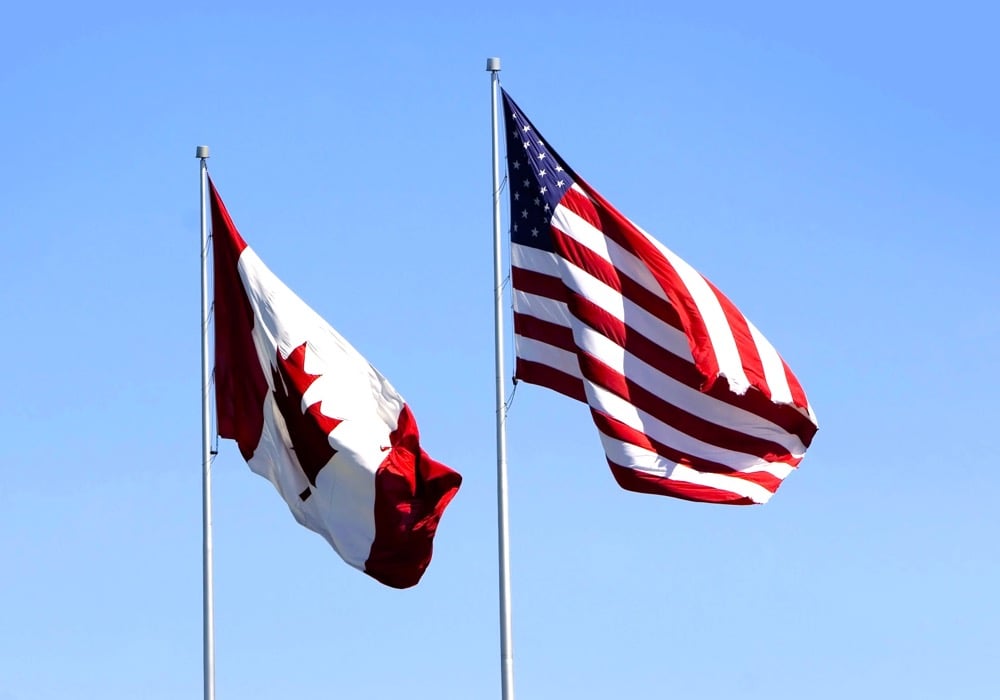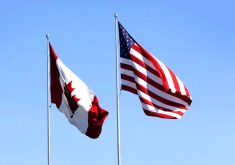Canada has applied to the World Trade Organization for $3 billion worth of retaliatory tariffs against the United States country of origin law.
The WTO dispute settlement body considers the request on June 17 and if it approves, Canada may decide how and when to retaliate.
The Canadian government wants the U.S. to repeal the law, which applies to Canadian cattle and hogs that enter the U.S., or face extreme tariffs on imported foods, furniture and other consumer goods.
“Canada’s retaliation will be real and we expect it to be in effect late this summer,” said agriculture minister Gerry Ritz from Washington, D.C., on June 4.
Read Also

Canadian trade data delayed by U.S. government shutdown
Canadian international trade data for September will be delayed indefinitely due to the ongoing partial shutdown of the United States government, Statistics Canada said Friday, Oct. 24.
Ritz said the situation cannot be fixed with a modified rule as proposed by senator Debbie Stabanow from Michigan, who defended the labeling law as a consumer right to know about food sources.
The bill requires American packers to separate Canadian and Mexican beef and pork from slaughter and processing lines, which increases packers’ costs and acts as a deterrent to buying those products.
“It is not an option our government or our industries will entertain. A full repeal of COOL is the United States’s only option to avoid retaliation,” Ritz told reporters.
Ritz and representatives from the Canadian Cattlemen’s Association, Canadian Pork Council and Canadian Meat Council met with key members of the U.S. Senate and House of Representatives to discuss the next steps.
A new bill could be introduced to the full House by the middle of next week. The Senate may examine this bill or come up with its own version.
There is not consensus at this time on the Senate side and some are considering alternative labels, said Dave Solverson, president of the cattlemen’s association who was in Washington with Ritz.
He suspects the tariffs will first be applied to products from states where politicians still support COOL. He is not concerned they might inadvertently hurt Canadians who need to import American products.
“The government, to their credit, (was) very strategic in picking things where there are replacements,” he said.
The group also met with members of the COOL Reform Coalition representing the U.S. Chamber of Commerce and associations representing the interests of corn, wine, soybeans, fruit, vegetables and registered seeds as well as major food processors that could be affected by the tariffs.
“They are not asking us to stop the retaliation. They are asking their government to fix COOL so retaliation won’t happen,” Solverson said.
Last month the WTO ruled against the labeling law for the fourth time on the grounds it discriminates against Canadian livestock. The government estimates COOL has cost the Canadian industry more than $3 billion in losses each year since it was implemented.
The full list of products may be viewed at in the Canada Gazette archives under the department of finance.
gazette.gc.ca/rp-pr/p1/2013/2013-06-15/html/notice-avis-eng.html#d115.















